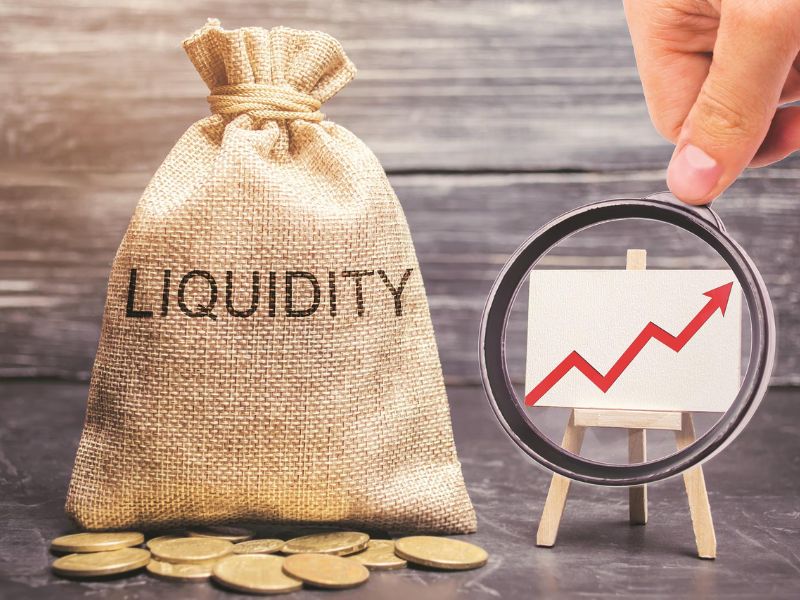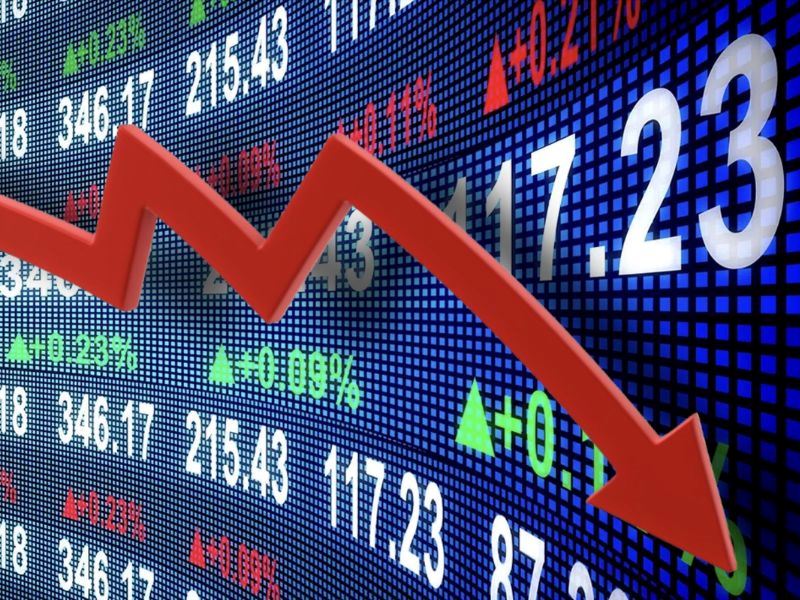This article by HVA will explain all the concepts of liquidity in forex and will help reduce some of the risks when trading forex.
Forex market size
Unlike other financial markets, such as the New York Stock Exchange, the forex market has no physical location. It is an “over-the-counter” (OTC) market, also known as an “interbank” market because transactions are conducted 24/7 through the electronic systems of banks around the world.
This means that liquidity in forex can be traded anywhere without going through a specific center. This is a investment knowledge sustainable for investors to easily participate in trading with just a laptop or phone with internet connection.

Forex is also the largest and most popular financial market in the world, attracting the participation of many individual investors as well as organizations. In this decentralized environment, choosing the right exchange is very important, depending on the conditions and attractiveness that the exchange brings.
The USD dominates as the most traded currency with 84.9% of trading volume, followed by the EURO with 39.1% and the JPY with 19%. The major currency pairs are always among the most traded in the market.
What is the Importance of Liquidity in Crypto?
Liquidity is always the top important factor that investors carefully consider before participating in any market. In the Crypto market, the liquidity issue becomes especially painful for investors with large capital. Liquidity in Crypto not only directly affects the price but also causes a significant difference between the expected and actual returns of the traded cryptocurrency.
For example, let's say you are holding a large amount of token B with an expected profit of 30%. If you want to sell all token B immediately to collect this profit but token B is illiquid, you may incur a price drop of up to 50%. This means that from a profit of 30%, you may turn into a loss of 35%.
On the other hand, if you want to keep your 30% profit and decide to sell slowly, it will take a lot of time. However, the Crypto market is not only for you to participate in the transaction. If you do not sell in time, there may be someone else willing to sell at a lower price, causing the token price to drop rapidly.
Therefore, choosing coins with high liquidity is a safe and reasonable decision, especially for investors. smart investment own a large amount of capital. This not only helps ensure profits but also minimizes risks when trading.
What is the importance of liquidity in forex?
Liquidity in forex plays a very important role in determining the ability to buy or sell a currency pair according to the trader's request. If you trade a highly liquid currency, it is a great advantage that helps you easily execute buy or sell orders quickly. However, not all currency pairs have high liquidity. The liquidity of currency pairs depends on whether they belong to the group of major currency pairs, minor currency pairs, exotic currency pairs or emerging market currencies.

When trading forex with high liquidity, you can execute buy or sell orders with various volumes, even within large standard deviations. However, it is important to note that the liquidity in forex not on the exchange rate but on the amount of currency being traded. This makes understanding the liquidity of each currency pair essential to a trading strategy.
Signs of poor liquidity in forex
From a trader’s perspective, a highly liquid market is typically smooth with a large volume of trades taking place at any given time. Such a market is known as a deep or stable market, where price movements are less likely to be chaotic. Conversely, an illiquid market can make risk management difficult, especially if you find yourself on the wrong side of a big move.
Main features of liquidity in forex least:
Gaps in Forex Trading
- Price gaps in forex can appear when there are important news announcements such as interest rates or unexpected events.
- Usually occurs at the beginning of the trading week, when the market opens on Sunday afternoon in the US. However, the price gap in forex is usually less than 1% from the currency value.
- Compared to the stock market, forex tends to have less volatility due to 24-hour trading.
Forex liquidity assessment index
- Brokers often provide volume charts for traders to assess liquidity.
- Each volume bar on the chart represents the trading volume over a given period of time, helping to measure liquidity.
- Note that the data forex liquidity from a broker only reflects the trading in their system, but for large brokers this can be a relatively accurate representation of the retail market.
Liquidity changes during the trading day
- Liquidity varies significantly between trading sessions.
- The Asian session is typically quiet with range bound prices, while the London and US sessions have greater volatility, accounting for the majority of total daily trading volume.
- The US morning session, which coincides with the London session, accounts for more than 50% of global trading volume, and is when the biggest moves occur. In contrast, the US afternoon is usually quieter, unless there are surprise announcements from the Federal Open Market Committee (FOMC).
Understanding these factors helps traders adjust their strategies, making the most of them. liquidity zone in forex and avoid unnecessary risks in the forex market.
Risks of low liquidity in forex trading
There is often a strong correlation between high liquidity and risk in forex trading, and it is important to understand these risks. A clear example of how liquidity affects risk is the Swiss Franc (CHF) crisis in 2015. When the Swiss National Bank announced that it would stop intervening by not buying francs and selling euros, the interbank market was disrupted due to the inability to price. This event caused huge losses in the CHF trading accounts of many investors. Although such “Black Swan” events are rare, when they occur, the consequences are often severe.

To manage risk liquidity in forex, individual forex traders can reduce leverage and set stop-losses to protect their accounts. At the same time, brokers need to ensure liquidity risk management by calculating and applying stop prices appropriately. When considering the relationship between liquidity risk and reward, traders should not ignore either factor but should incorporate both into their analysis routine.
Liquidity plays a very important role in forex trading. Recognizing this role and understanding the characteristics of a liquid market will bring both opportunities and challenges to investors. Hopefully the above article of HVA will provide useful information, helping you recognize the signs of a market liquidity in forex good. wish you successful trading!











